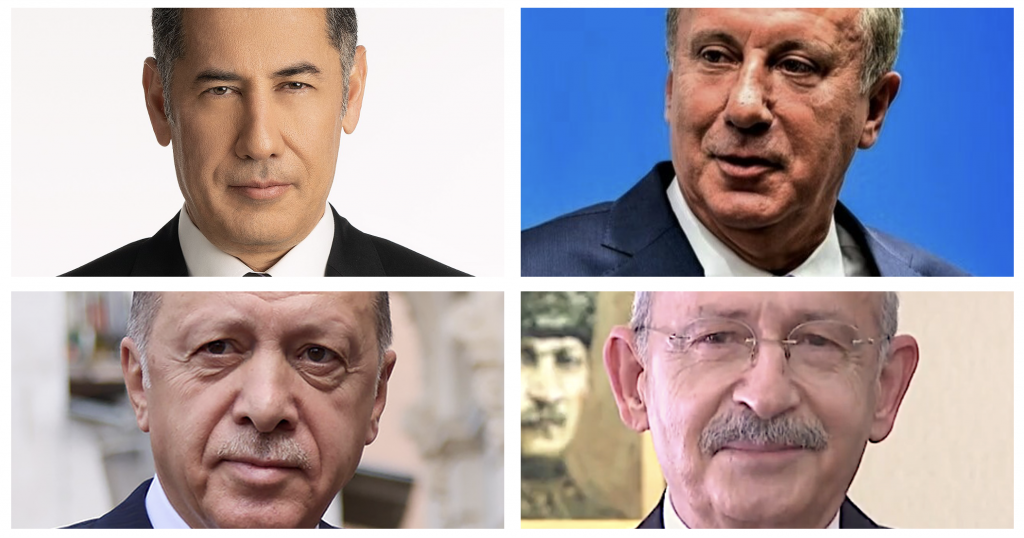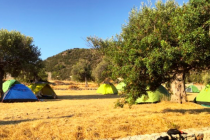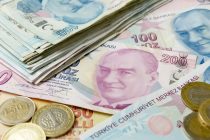On Sunday 14 May 2023, millions of voters in Türkiye head to the polls for the Presidential and Parliamentary elections.
This year, the country celebrates its centenary as a Republic and Sunday’s vote is likely to go down as one of the most anticipated and pivotal days in the country’s history so far.
Official figures show over 64.1 million people are eligible to vote in the two elections. The figure includes 3.5 million Turks living abroad, making the diaspora the fourth largest bloc after the big Turkish cities of Istanbul, Ankara and Izmir.
In 2018, an average of 50% of Turks living abroad voted in the presidential elections, while turnout in Turkiye was around 86%. Officials have already said diaspora voting in 2023 is far higher and likely to break previous records.
There are over 20 different parties vying to enter Turkiye’s Grand Assembly. There are 600 seats across 87 districts that are up for grabs. Any party requires at least 7% of the national vote or more to enter Parliament. Some smaller parties have entered into a larger political alliance to help them achieve this – if the bloc as a whole secures 7% then each of the parties involved will have some MPs.
The Parliamentary contest has received far less attention in these elections because since 2017 the country has been governed by a presidential system. The incumbent, President Recep Tayyip Erdoğan, is seeking re-election for another five-year term. For the first time in over a decade, he is not favourite to win.
Combined with his earlier years as Prime Minister and President, Erdoğan has ruled Turkiye for the past twenty years. While some people are very happy with his politics and what he has achieved, many other sections of Turkish society are not.
Among the most critical issues for the Turkish electorate, which includes over 6 million first-time voters, are the economy, freedom of speech, the status of the Syrian and Afghan refugees, and rights for women and minority groups, including Kurds, Alevis, and those from the LGBTQ community.
After the devastating earthquakes that struck eastern Turkiye and Syria on 6 February, there are concerns not just how to rebuild the affected areas, but also how best to prepare Istanbul for the inevitable ‘mother of all’ earthquakes that is due to hit the city.
There are also fears among many voters that if Erdoğan is re-elected, he will challenge the first four articles of the Turkish Constitution. These set out that the country’s nature as a unitary state and a secular democracy with sovereignty invested in the Turkish nation, where all citizens are equal before the law. Any attempts to modify these core founding principles of the Turkish Republic are strictly forbidden.
With so much at stake, election stress is at very high levels, not only in Türkiye but also its closest allies, the Turkish Republic of North Cyprus and Azerbaijan too.
To give an idea to outsider, the atmosphere right now is very similar to the United States’ 2016 and 2020 presidential elections, which, respectively, saw the triumph and defeat of Donald Trump.
People have been anticipating the 2023 Turkish Presidential Election ever since the last Presidential election in 2018 where President Erdoğan won in the first round by 52.59% (in Turkiye, presidential candidates are required to get 50%+1 vote to win).
There is simply no way to separate politics from daily life at the moment. The poor economic situation, which has seen inflation soar to above 85% in the past few years, and the value of the Turkish lira collapse to its lowest levels in 20 years, has left many Turks now living below the poverty line.
For in Turkish Gen Zs (16–24-year-olds), politics has also become ingrained into their topics of conversation as the outcome of these elections will shape the future of Turkiye they inherit.
The ever-growing number of dissident Turks are itching to overthrow what they describe as Erdoğan’s “One-Man Regime”.
The aftermath of the 6 February Türkiye-Syria earthquakes, where thousands of poorly constructed homes collapsed and insufficient government preparation meant those trapped in the rubble could not be saved, has created even more urgency to terminate the current regime, and its likely to have even swayed some of Erdoğan’s core support towards the three other presidential candidates he faces.
Presidential Candidates
Sinan Oğan
Background: 55-years-old. A hard-right politician from Iğdır, Türkiye.He is the independent candidate of the Nationalist, Kemalist ATA Alliance (Zafer Party, Adalet Party, Türkiye İttifakı Party and Ülkem Party).
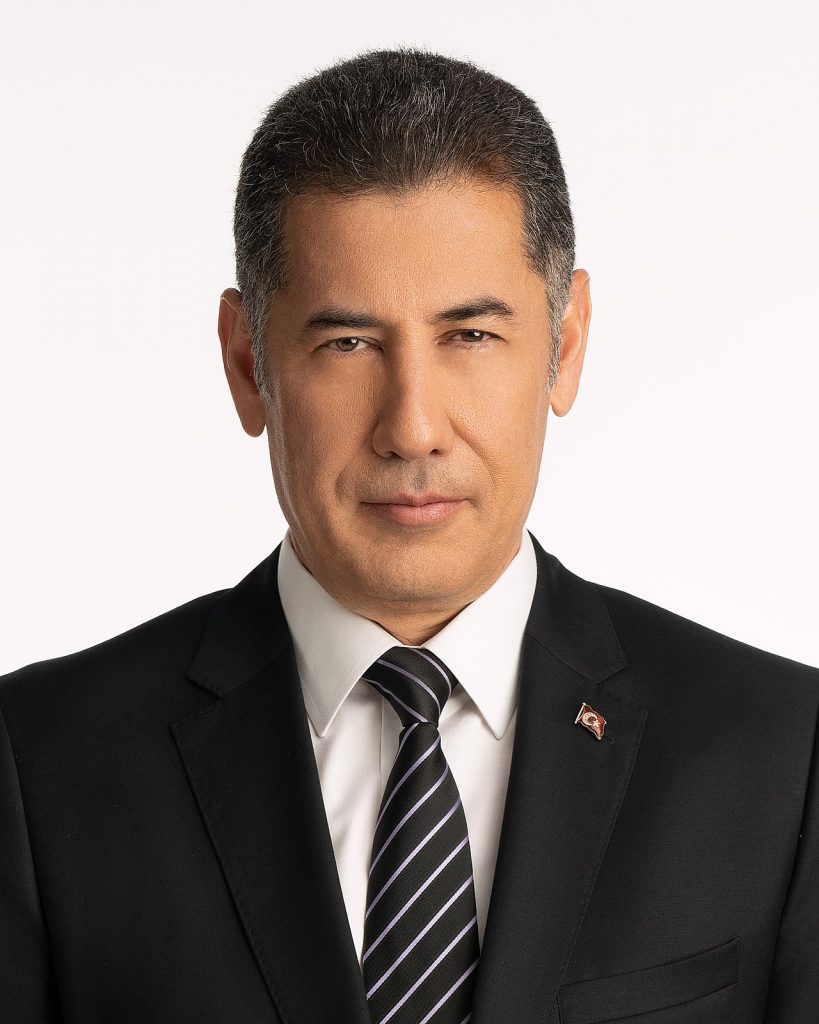
Political Experience:
- Independent since 2017
- Former Member of the Nationalist Movement Party (MHP) (2011-2017)
- Member of the Grand National Assembly (2011-2015)
Key Policies:
- To send all refugees back to Syria/Afghanistan and remove Turkish citizenship from those who acquired it through fraud or false representation.
- To raise the minimum wage to raise the poorest workers above the poverty line.
- To turn Türkiye into a ‘chip production centre’; Oğan is already negotiating the idea with Taiwan, which is looking for new production areas due to the growing threat from China.
Oğan says he is a candidate to represent Turkiye’s nationalists and for nationalists to be the key players in what course the election takes in Round 2 instead of HDP.
Most of Oğan’s supporters are former İnce supporters (even before İnce withdrew, many of his supporters had swayed to Oğan) and disaffected MHP partisans who do not agree with their party leader Devlet Bahçeli’s support of Erdoğan’.
Among the nationalists, Kemalists and ‘Ülkücüs’, support for Oğan has grown considerably in the space of just two weeks following his Babala TV appearance on 24 April.
More significantly, many supporters of the other three candidates, Erdoğan, Kılıçdaroğlu and İnce, have expressed on social media and in surveys that Oğan would be their second choice.
One huge influential factor in swaying young swing voters has been the political programme ‘Mevzular Açık Mikrofon’ hosted by Oğuzhan Uğur for super-popular YouTube channel Babala TV.
The programme format allows audience members, mostly comprising Gen Zers and journalists, to ask questions to politicians appearing on the show.
Muharrem İnce
Background: 59 years old. A former physics teacher from Elmalık, Türkiye, and leader of the Memleket (Homeland) Party, who sensationally withdrew his candidacy three days before the election.
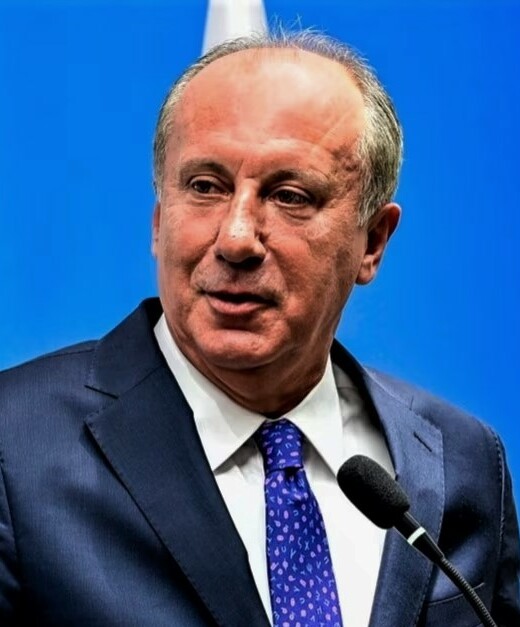
İnce describes himself as the “Kemalist” candidate and a “Republican Democrat”. He is not part of any coalition.
Political Experience:
- 2023 presidential candidate who withdrew from the race on 11 May 2023
- Founding Party Leader of the Homeland Party, launched in 2021
- 2018 CHP presidential candidate
- Parliamentary Deputy Group Leader of CHP (2010-2014)
- Member of the Grand National Assembly (2002-2018)
Key policies:
- To completely clean out the religious cults and secret societies in Türkiye, particularly those related to disgraced cleric Fethullah Gülen and his FETÖ group.
- Projects to tackle the inevitable climate-change induced problems of the near future, such as water scarcity and the food crisis, and to focus on fusion technology to get ahead of an energy crisis in 10 years’ time. Also agriculture and livestock projects in order to develop Türkiye.
- To restore the Istanbul Convention, which is a Council of Europe convention to prevent and combat violence against women and domestic violence.
Although Muharrem İnce withdrew his candidacy on 11 May, his name remains on the ballot paper, which can’t be changed at this late stage of the contest. Any votes already cast for İnce by the diaspora prior to his announcement, or by voters on Sunday, whether deliberately or by mistake, will still be valid and counted as part of the election.
There has been huge speculation as to the reasons behind İnce’s shock withdrawal on Thursday. It also leaves a huge void in terms of choice.
İnce’s Kemalist stance and anti-Nation Alliance message has appealed to young Turks who value the secular republican nature of their country, see the damage of President Erdoğan’s reign, and are also wary of the foothold in Parliament nationalist Kurds and secret members of the proscribed FETO group may have via the 6-party bloc of the Nation Alliance.
Out of the four candidates, İnce’s was predicted to secure the highest percentage of votes from young people aged between 18-25 compared to other age groups, especially those who are first time voters.
After the 6 February earthquake, İnce was the first politician to visit Hatay and other affected cities, creating a surge in İnce’s popularity. People’s interest had been piqued with his Babala TV appearance on September 2022, which gained millions of views. He had also been one of the only politicians and the only presidential candidate to consistently warn people on the threat of earthquakes, emphasising since 2020 how unprepared Türkiye was.
His continual criticism of the Nation Alliance generated tons of backlash from CHP partisans and Nation Alliance supporters, who accused him of not showing the same forceful rejection of the current government.
Many CHP hope Kılıçdaroğlu will benefit from İnce’s withdrawal, but as most of his support base have rejected CHP or are protesting against the alliance they are in, it’s more likely that the majority of İnce’s supporters, who are very distraught following his withdrawal, will support Sinan Oğan whose position and policies are very similar to İnce’s.
Recep Tayyip Erdoğan
Background: 69 years old. President of Turkiye and Leader of the AK Party (Justice and Development Party). His candidacy represents the Conservative, Islamist People’s Alliance (AKP, MHP, BBP and Yeniden Refah Party) as part of the People’s Alliance (‘Cumhur İttifakı’).
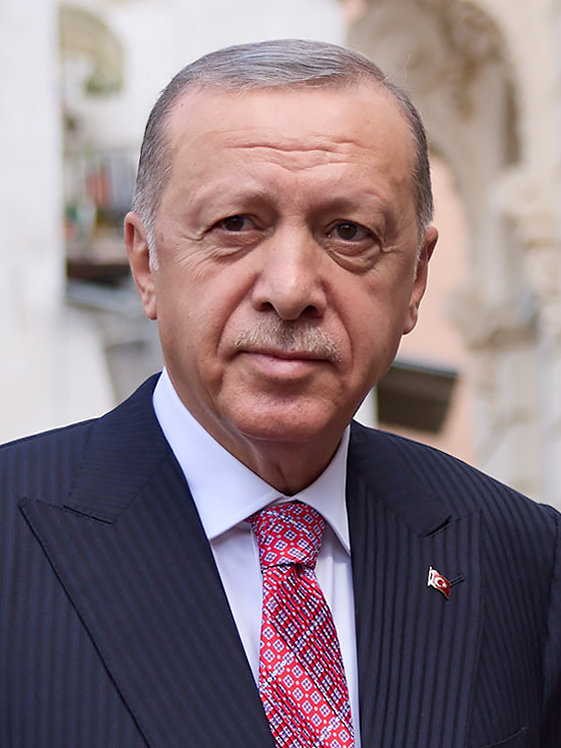
Political Experience:
- The 12th President of Türkiye, who came into office in 2014.
- Prime Minister of Türkiye (2003-2014)
- Leader of AKP (2001-2014) and again since 2017
- Chairman of the Organization of Turkic States (2021-2022)
- Member of the Grand National Assembly (2003-2014)
- Mayor of İstanbul (1994-1998)
Key Policies:
- Erdoğan has promised to abolish oral interviews and instead make public recruitments based on the success ranking in exams, unless interviews are necessary for a job. This is a policy CHP has been advocating for years.
- To build 650,000 houses for earthquake survivors, 319,000 of which will be finished within one year.
- The president is adamant on letting Syrian refugees stay in Turkiye, even speaking to Syrians in Arabic at his Konya rally last week, but he has also said, “We will not consent to the Syrianization of Türkiye”, in a nod to those who want the refugees to return to Syria.
The president is backed by parties of the People’s Alliance, an unlikely combination of parties that include the far-right Islamist Hüda Par and centre-left DSP.
Erdoğan’s core supporters are conservative, Islamist nationalists, which translates to around 30% of Türkiye’s population.
The exact number of refugees who have Turkish citizenship and therefore a right to vote in the elections are unknown, but they will undoubtedly be voting for Erdoğan.
Their votes could make all the difference, potentially replacing disaffected AKP voters who have switched away from Erdoğan to one of the other three opposition candidates.
The importance the Erdoğan campaign attaches to this can be seen by the number of AKP brochures written in Arabic being handed out to new citizens explaining to them how to vote.
According to news website Aykırı’s chief editor Batuhan Çolak, an SMS was sent to all people of Arab origin eligible to vote in the elections to vote for President Erdoğan and AKP.
AKP’s big political rallies have been full of Syrian, Afghan and Pakistani refugees. In addition, there are thousands of videos, shares, tweets and tiktoks by these foreigners making pro- Erdoğan propaganda and advising others to vote for him.
It’s not only conservative nationalists and refugees, but also foreign political figures who have declared their support for Erdoğan in the upcoming election. They include the Albanian Prime Minister Edi Rama, the President of Azerbaijan, İlham Aliyev, and TRNC President Ersin Tatar.
A veteran of global politics due to his many years representing Turkiye on the international stage, Erdoğan has been very successful in bringing together the Turkic world through the Organization of Turkic States in the last few years. While critical of the Russia’s invasion of Ukraine, Erdoğan has also advocated a largely neutral stance towards Russia, which has not been well received by many of Türkiye’s NATO allies. In many ways, Turkiye’s closeness to Putin has irked the West and raised eyebrows in Turkiye.
Erdoğan’s nemesis Kılıçdaroğlu, while hugely pro-Türkiye, has made clear he intends to improve relations with NATO and the West.
“Türkiye is a member of the Western alliance and NATO and Putin also knows this well. Türkiye must comply with decisions taken by NATO”, Kılıçdaroğlu told Wall Street Journal.
Kemal Kılıçdaroğlu
Background: 74-years-old. Leader of the CHP (Republican People’s Party). Candidate of the 6-party bloc called the Nation Alliance (CHP, İYİ, Saadet, Deva, Gelecek and DP) which wants a return to a Parliamentary system of democracy.
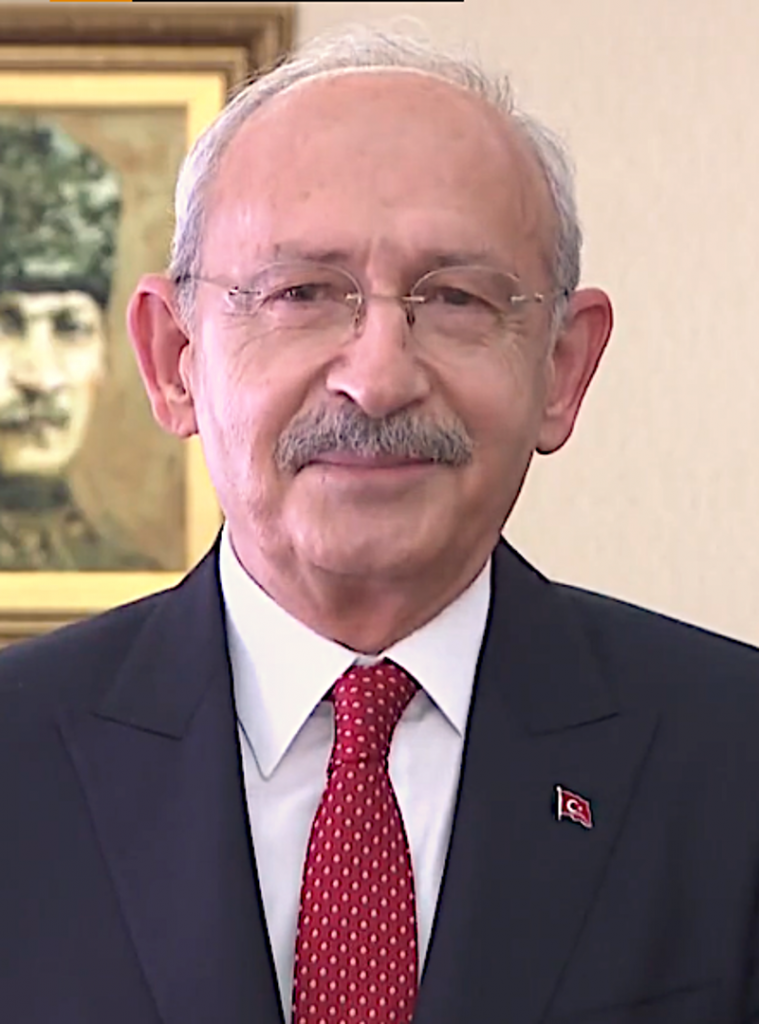
Political Experience:
- Architect of the Nation Alliance
- Leader of the Main Opposition CHP since 2010
- Vice President of the Socialist International (2012-2014)
- Member of the Grand National Assembly since 2002
Key Policies:
- To recover the country’s “stolen” $418 billion
- To send Syrian refugees back to their country within two years, in co-operation with the European Union, United Nations and countries in the Mediterranean region. Turkish contractors will build the houses, schools, roads and kindergartens for these refugees in Syria.
- To build a 5,500 km long highway and railway, known as the “Silk Road” project, which will connect Türkiye to China. One of the few conditions being that China end their repression on East Turkestan.
As leader of the main opposition, Kılıçdaroğlu can count on the CHP faithful – a guaranteed 25% of the population – to vote for him. However, through the Nation Alliance, also known as the Table of Six, he is guaranteed votes from these other five parties too.
In addition, the pro-Kurdish HDP has also declared their support for Kılıçdaroğlu’s presidential candidacy, as have many other small centrist and leftist parties like TİP and BTP.
Whether formally or informally, the majority of Turkiye who want to end the one-man rule of Erdoğan and the country’s economic crisis and democratic deficiency are all rallying behind Kılıçdaroğlu.
The member parties on the Table of Six who are bringing key votes to the Kılıçdaroğlu camp are İYİ Party, a Kemalist-nationalist party led by Meral Akşener, and Saadet Party, a conservative İslamist-nationalist party under Temel Karamollaoğlu.
While far smaller than the AKP, Saadet appeals to many of Erdoğan’s natural support base; not having the party back the president in these elections is a major loss. For Kılıçdaroğlu, having just one İslamist conservative party’s support — and an influential one at that – has been a huge gain for him and his electoral chances.
The Nation Alliance has been renamed by some as the “Benefit Alliance” since the other party leaders, former AKP players Ahmet Davutoğlu and Ali Babacan, and Democrat Party head Gültekin Uysal, do not draw in more than an estimated 1% vote of the total electorate. While the offer little in terms of votes for Kılıçdaroğlu, the three parties these men lead will all gain by their affiliation with the bloc, as they will pass the threshold enabling them to enter Parliament as MPs.
The three leaders of the smaller parties, along with Akşener and Karamollaoğlu, will all be rewarded with a vice presidency and control over some ministries if Kılıçdaroğlu wins.


